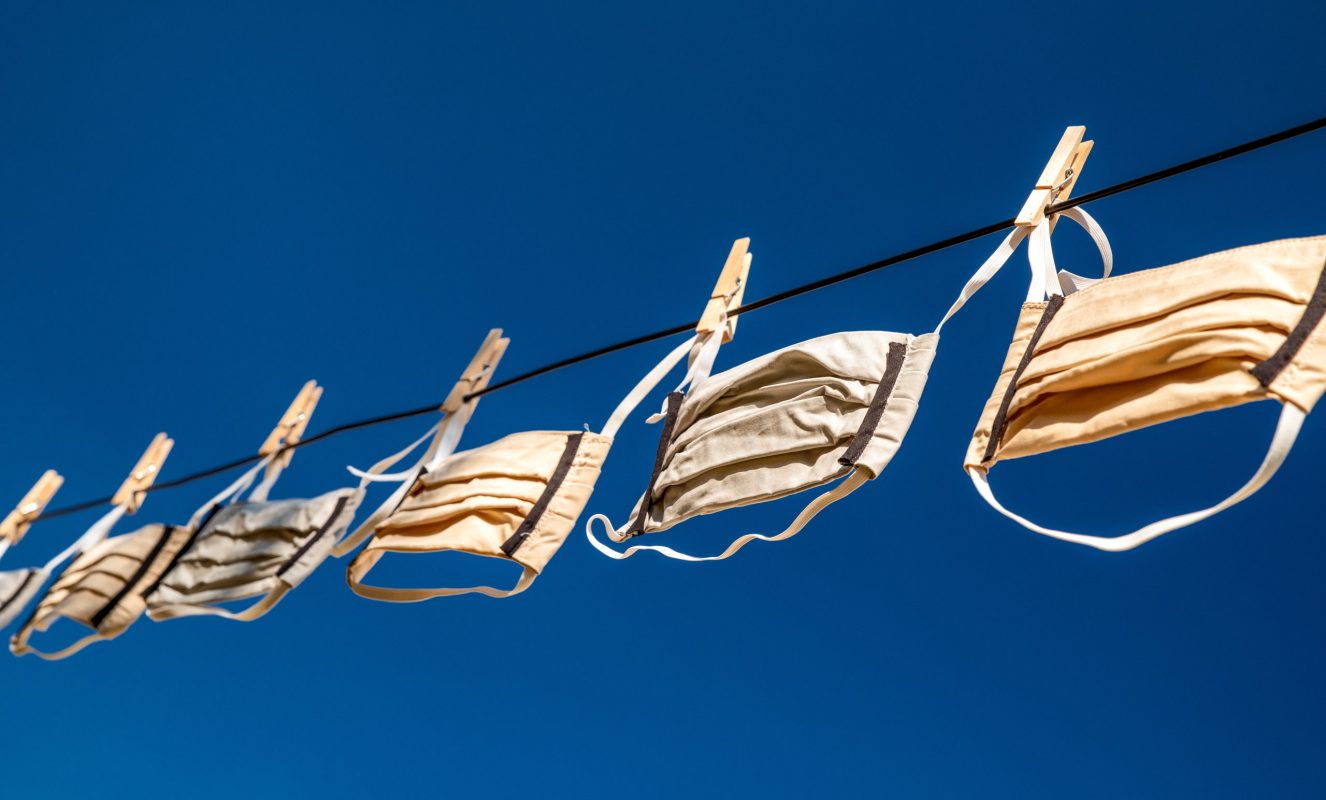News trend
How to Clean Your Face Mask—and Protect Your Skin—for Optimal Safety This Summer
“Phone, keys, wallet…face mask?” Such is the mental checklist that we tick off before leaving the house in the time of COVID-19. Adapting to wearing face coverings has introduced an array of new considerations, chief among them: How to clean your face mask? And how often should you be washing them—both to stay safe and keep skin healthy? Here, experts weigh in on the best practices for wearing and maintaining a face mask for optimal hygiene, as how to keep your complexion soothed and protected all summer long.
Why wearing a face mask is essential:
“When we sneeze, cough, talk, or even just breathe we all emit small particles to the air- and those particles can contain the virus that causes COVID-19,” explains Kirsten Koehler, an occupational and public health expert who is an associate professor in environmental health and engineering at Johns Hopkins Bloomberg School of Public Health in Baltimore, Maryland. “Face masks can reduce the spread of these particles, which is especially important because some people are infected but have no symptoms. It can also reduce the number of the particles that you breathe.” According to Koehler, a tightly woven fabric that fits snugly around the face will provide the best particle removal efficiency. “If it’s too loose, all the air will go around the sides of the mask and none of the particles will be removed that way,” she says. During summer, when exhaled breath is especially humid, it’s important to note that cloth masks run the risk of becoming damp with wear, and you may want to bring an extra mask with you. Additionally, it’s essential to wash your hands after handling or touching a used face covering.
Why you need to wash a face mask after each use:
Reusable cloth face masks should be cleaned and disinfected after each use, says Koehler. While washing is the ideal, if you can’t do so after every wear, you can place the mask in a paper bag (not plastic!) and keep it in a warm place, like near a window. “Wait at least two days before wearing the mask again,” explains Koehler. “This will allow the mask to dry completely and for the virus to become inactive.” It’s essential that you’re not walking around with a dirty mask as it could potentially contain respiratory droplets that evaporate into lingering particles, which could potentially expose those in close proximity to you. According to Koehler, you can include your face covering as part of your regular laundry with a gentle detergent and the warmest appropriate water setting for the fabric of your cloth mask. If you’re washing a cloth mask by hand, keep the CDC-recommended hand-washing technique in mind. “Give it a good scrub for at least 20 seconds with soap and warm water,” instructs Koehler. “Then be sure to rinse it thoroughly and let it dry completely in a warm place before reuse.”
Why face masks can be irritating to the skin, and how you can treat it:
“Depending on the material and the fit of the mask, extended periods of mask wearing can occlude some of the skin surface and thereby contribute to acne or heat rash,” explains Andrew Alexis, MD, MPH, and professor of Dermatology at the Icahn School of Medicine at Mount Sinai. “Choosing breathable materials, such as cotton, to minimize sweat and oil getting trapped, or having periodic mask breaks in a safe, socially distanced setting are strategies for mitigating this.” For visibly inflamed skin, Alexis recommends applying hydrocortisone cream, which can provide rapid relief of the discomfort. If it’s an acne outbreak, a topical Benzoyl Peroxide treatment with a concentration of 5.5% or less can be used. If the skin is eroded, applying a thin layer of a petrolatum-based healing ointment will help restore the barrier quickly.
How to keep skin soothed and protected underneath a face mask:
To further prevent irritation, prep your skin. “Applying a facial moisturizer before putting on your mask is an important step in ensuring a healthy skin barrier and therefore reducing risk of irritation,” Alexis says, adding that hyaluronic acid and ceramides are two robust ingredients to look for. In the summer, Alexis also advises his patients to wash their face twice daily with a hydrating cleanser, skip wearing makeup as much as possible to avoid acne flair-ups, and to wear sun protection. “While a face mask covers a large portion of your face, it is not designed to protect against UV from the sun, so it’s paramount to continue putting on sunscreen to your whole face (and other exposed areas of skin) before going outside,” he says.

